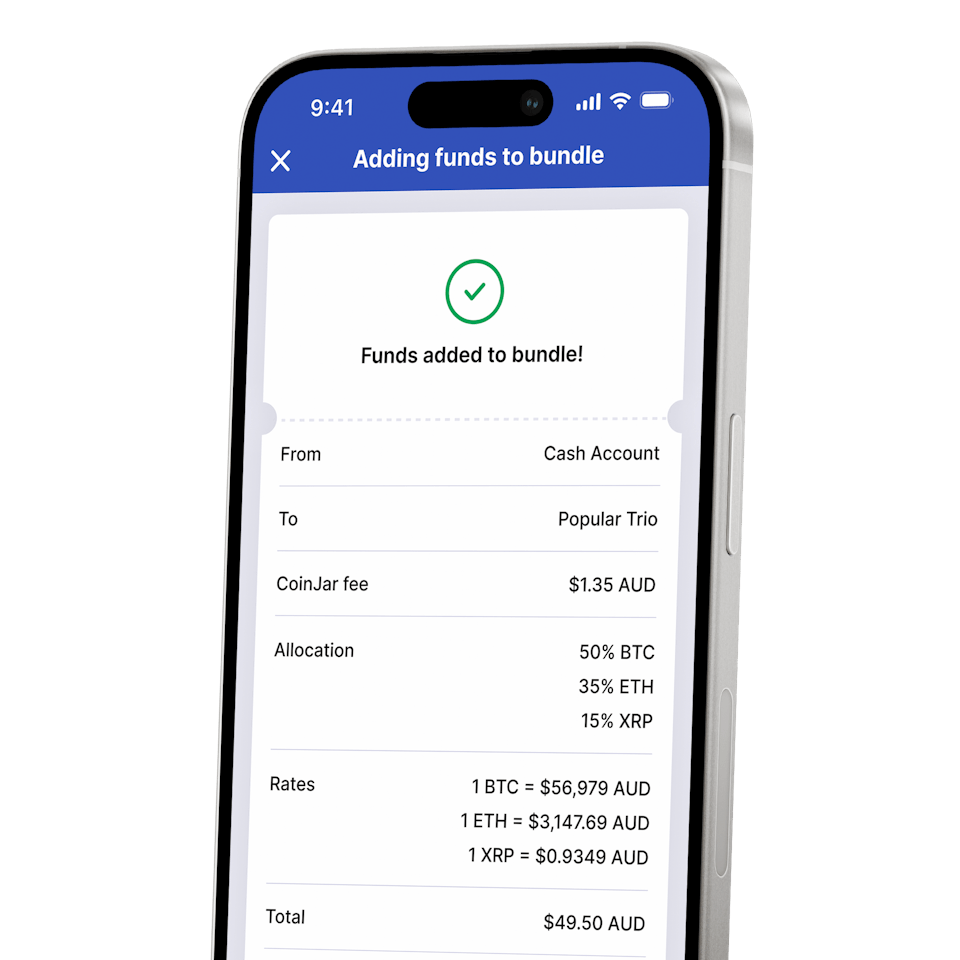Buy SushiSwap in Australia on CoinJar
SushiSwap
SUSHI
Overview
What is SushiSwap?
Why investors buy SUSHI: SushiSwap, a exchange (DEX), has been making itself known in the crypto world. But what exactly is it, and why are investors interested in it? Let’s take a look at SushiSwap’s popularity and why its token, SUSHI, is an interesting investment choice.
One-Stop shop for passive income
offers a diverse range of passive income opportunities, setting it apart from other DEXs.
Here’s how it works.
Liquidity pools
SushiSwap allows investors to provide liquidity by participating in liquidity pools. These pools enable users to earn fees on the exchange for tokens listed on the platform. What’s unique is that SUSHI operates on 20 different blockchains.
Yield farming
Liquidity providers receive LP tokens, which they can use for yield farming. Yield farming involves staking LP tokens to earn additional SUSHI tokens. Unlike Uniswap, SushiSwap supports this functionality, making it a go-to platform for yield-seeking investors.
Utility token
SUSHI is not just a governance token; it’s a utility token. Investors benefit from its practical use within the ecosystem.
Gas-efficient borrowing
The BentoBox smart contract acts as a token vault. By depositing tokens into BentoBox, users earn more tokens over time. The key advantage? Gas-efficient interactions with decentralised applications (dApps).
Gas fees are transaction fees on the Ethereum blockchain. BentoBox minimises gas costs, making it an attractive feature for investors.
Flexibility
The decentralised exchange operates without intermediaries. Users trade directly with liquidity pools via non-custodial wallets. This design reduces the risk of hacks and provides flexibility in coin selection.
Conclusion
SushiSwap’s unique features and utility token, SUSHI, make it an appealing choice for investors. As the crypto industry continues to grow, SUSHI is expected to grow in importance.








Cash, credit or crypto?
Buy SushiSwap instantly using Visa or Mastercard. Get cash in your account fast with bank transfer, PayID or Osko. Convert crypto-to-crypto with a single click.How to buy SushiSwap with CoinJar
Start your portfolio with Australia's longest running crypto exchange with these simple steps.Featured In


CoinJar Card
CRYPTO SPENDING POWERED BY MASTERCARD®CoinJar DCA & Bundles
AUTOMATE & DIVERSIFY YOUR PORTFOLIO

CoinJar Exchange
TRADE FOR AS LOW AS 0%Frequently asked questions
What is SushiSwap?
SushiSwap is a decentralised exchange (DEX) that allows users to trade crypto assets without intermediaries. It was created in 2020 as a fork of Uniswap, another popular DEX.
How does SushiSwap differ from traditional exchanges?
Unlike centralised exchanges, SushiSwap operates on smart contracts. Users trade directly with liquidity pools, eliminating the need for a central authority.
What are liquidity pools?
Liquidity pools are pools of tokens provided by users to create liquidity for trading pairs. By adding tokens to these pools, users can earn trading fees and SUSHI rewards.
What is SUSHI?
SUSHI is the governance token of SushiSwap. Holders can participate in decision-making and propose changes to the protocol.
How do I create liquidity on SushiSwap?
To create liquidity, deposit an equal value of two tokens into a liquidity pool. In return, you then can receive LP tokens. This represents your share of the pool.
What are automated market makers (AMMs)?
AMMs like SushiSwap use algorithms to determine token prices based on supply and demand.
They facilitate decentralised trading without order books.
Who is Chef Nomi?
Chef Nomi is the pseudonymous creator of the exchange and crypto. Initially controversial due to withdrawing developer funds, Chef Nomi later returned them to the project.
What additional features does SushiSwap offer?
What additional features does SushiSwap offer?
BentoBox: A smart contract vault for efficient token interactions.
Gas-efficient borrowing: Minimises transaction fees.
Yield farming: Stake LP tokens to earn more SUSHI.
Is SushiSwap a safe investment?
As with any crypto asset, risks exist. Do thorough research and consider professional advice.
Who created SUSHI?
The SushiSwap decentralised exchange (DEX) was founded by pseudonymous developers Chef Nomi and SushiSwap 0xMaki. SUSHI can be used in both decentralised finance (DeFi) and other centralised crypto exchanges.
CoinJar’s digital currency exchange services are operated by CoinJar Australia Pty Ltd ACN 648 570 807, a registered digital currency exchange provider with AUSTRAC.
CoinJar Card is a prepaid Mastercard issued by EML Payment Solutions Limited ABN 30 131 436 532 AFSL 404131 pursuant to license by Mastercard. CoinJar Australia Pty Ltd is an authorised representative of EML Payment Solutions Limited (AR No 1290193). We recommend you consider the and before making any decision to acquire the product. Mastercard and the circles design are registered trademarks of Mastercard International Incorporated.
Google Pay is a trademark of Google LLC. Apple Pay is a trademark of Apple Inc.
This site is protected by reCAPTCHA and the and apply.












